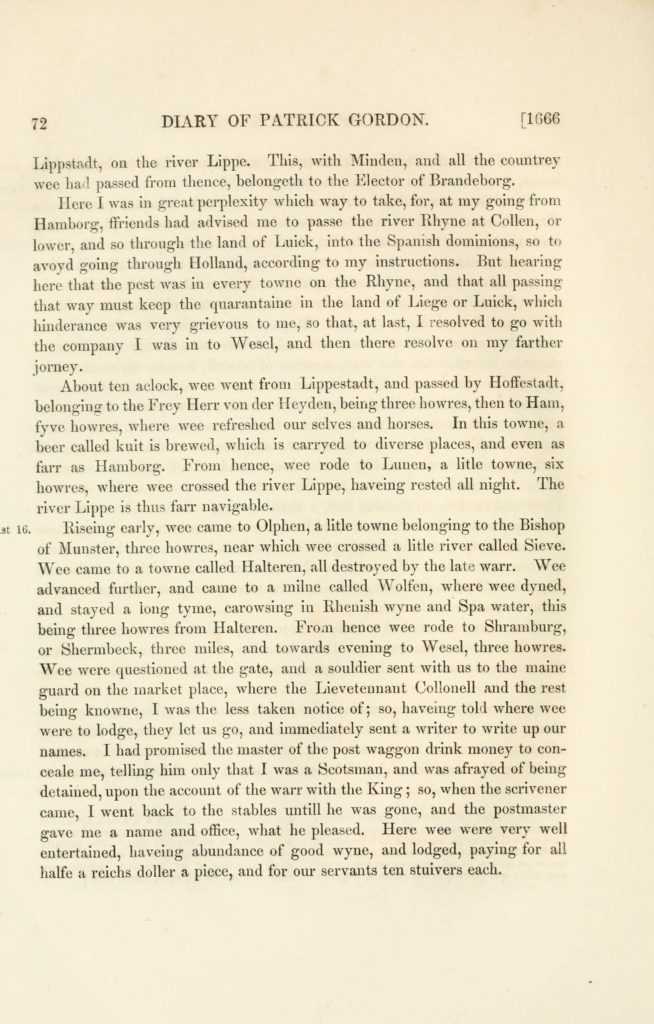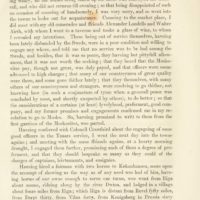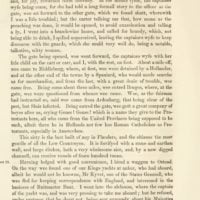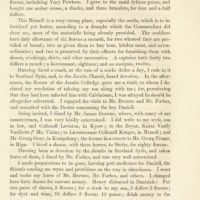
Related
![1686] DIARY OF PATRICK GORDON. 123 by the river, well fortifyed with a wall](https://cdn2.picryl.com/thumbnail/1699/12/31/1686-diary-of-patrick-gordon-123-by-the-river-well-fortifyed-with-a-wall-7f3356-200.jpeg)
1686] DIARY OF PATRICK GORDON. 123 by the river, well fortifyed with a wall
![1686] DIARY OF PATRICK GORDON. 155 Crossing the Black River](https://cdn2.picryl.com/thumbnail/1699/12/31/1686-diary-of-patrick-gordon-155-crossing-the-black-river-daa006-200.jpeg)
1686] DIARY OF PATRICK GORDON. 155 Crossing the Black River
![1667] DIARY OF PATRICK GORDON. 87 Dined by Mr. Carril his father](https://cdn2.picryl.com/thumbnail/1699/12/31/1667-diary-of-patrick-gordon-87-dined-by-mr-carril-his-father-a86887-200.jpeg)
1667] DIARY OF PATRICK GORDON. 87 Dined by Mr. Carril his father

42 DIARY OF PATRICK GORDON. [1661 misfortune
![1667] DIARY OF PATRICK GORDON. 97 storme, wee could not gett over to Embden](https://cdn2.picryl.com/thumbnail/1699/12/31/1667-diary-of-patrick-gordon-97-storme-wee-could-not-gett-over-to-embden-4fd79e-200.jpeg)
1667] DIARY OF PATRICK GORDON. 97 storme, wee could not gett over to Embden
![1666] DIARY OF PATEICK GORDON. 81 mariners aud souldlers](https://cdn2.picryl.com/thumbnail/1699/12/31/1666-diary-of-pateick-gordon-81-mariners-aud-souldlers-ea9fb7-200.jpeg)
1666] DIARY OF PATEICK GORDON. 81 mariners aud souldlers

76 DIARY OF PATRICK GORDON. [1666 the cart was ready

116 DIARY OF PATRICK GORDON. [1686 a third, on the way to Konigsberg
![1666] DIARY OF PATRICK GORDON. 69 evening, wee sailed by it, and Bornholme](https://cdn2.picryl.com/thumbnail/1699/12/31/1666-diary-of-patrick-gordon-69-evening-wee-sailed-by-it-and-bornholme-0599fe-200.jpeg)
1666] DIARY OF PATRICK GORDON. 69 evening, wee sailed by it, and Bornholme
72 DIARY OF PATRICK GORDON. [1G66 Lippstadt, on the river Llppe
Summary
Passages from the diary of General Patrick Gordon of Auchleuchries : A.D. 1635-A.D. 1699"
72 DIARY OF PATRICK GORDON. [1G66
Lippstadt, on the river Llppe. Tins, with Minden, and all the coimtrey
wee had passed from thence, belong-eth to the Elector of Brandeborg'.
Here I Avas In great perplexity which way to take, for, at my going from
Hamborg, ifriends had advised me to passe the river Rhyne at Collen, or
lower, and so through tlie land of Luick, into the Spanish dominions, so to
avoyd going through Holland, according to my instructions. But hearing
here that the pest was in every towne on the Rhyne, and that all passing
that way must keep the quarantaine in the land of Liege or Luick, which
hinderance was very grievous to me, so that, at last, I resolved to go with
the company I was in to Wescl, and then there resolve on my farther
jorney.
About ten aclock, wee went from Lippestadt, and passed by Hoffestadt,
belonging to the Frey Herr von der Heyden, being three howres, then to Ham,
fyve howres, where wee refreshed our selves and horses. In this towne, a
beer called kuit is brewed, which is carryed to diverse places, and even as
farr as Hamborg. From hence, wee rode to Luuen, a litle towne, six
howres, where wee crossed the river Lippe, haveing rested all night. The
river Lippe is thus farr navigable.
St 16. Riseing early, wee came to Olphen, a litle towne belonging to the Bishop
of Munster, three howres, near which wee crossed a litle river called Sieve.
Wee came to a towne called Halteren, all destroyed by the late warr. Wee
advanced further, and came to a milne called Wolfen, where wee dyned,
and stayed a long tyme, carowsing in Rhenish wyne and Spa water, this
being three howres from Halteren. From hence wee rode to Shramburg,
or Shermbeck, three miles, and towards evening to Wesel, three howres.
Wee were questioned at the gate, and a souldier sent with us to the maine
guard on the market place, where the Lievetennant CoUonell and the rest
being knowne, I was the less taken notice of; so, haveing told where wee
were to lodge, they let us go, and immediately sent a writer to write up our
names. I had promised the master of the post waggon drink money to con-
ceale me, telling him only that I was a Scotsman, and was afrayed of being
detained, upon the account of the warr with the King ; so, when the scrivener
came, I went back to the stables untill he was gone, and the postmaster
gave me a name and office, what he pleased. Here wee were very well
entertained, haveing abundance of good wyne, and lodged, paying for all
halfe a reichs doUer a piece, and for our servants ten stuivers each.
Gordon was brought up and remained a lifelong Roman Catholic, at a time when the Church was being persecuted in Scotland. At age of fifteen, he entered the Jesuit college at Braunsberg, East Prussia, then part of Poland. In 1661, after many years experiences as a soldier of fortune, he joined the Russian army under Tsar Aleksei I, and in 1665 was sent on a special mission to England. After his return, he distinguished himself in several wars against the Turks and Tatars in southern Russia. In recognition of his service he was promoted to major-general in 1678, was appointed to the high command at Kiev in 1679, and in 1683 was made lieutenant-general. In 1687 and 1689 he took part in expeditions against the Tatars in the Crimea, being made a full general. Later in 1689, a revolution broke out in Moscow, and with the troops under his command, Gordon virtually decided events in favor of Peter the Great against the Regent, Tsarevna Sophia Alekseyevna. Consequently, he was for the remainder of his life in high favor with the Tsar, who confided to him the command of his capital during his absence from Russia. In 1696, Gordon's design of a "moveable rampart" played a key role in helping the Russians take Azov. One of Gordon's convinced the Tsars to establish the first Roman Catholic church and school in Muscovy, of which he remained the main benefactor and headed the Catholic community in Russia until his death. For his services his second son James, brigadier of the Russian army, was created Count of the Holy Roman Empire in 1701. At the end of his life the Tsar, who had visited Gordon frequently during his illness, was with him when he died, and with his own hands closed his eyes. General Gordon left behind him a uniquely detailed diary of his life and times, written in English. This is preserved in manuscript in the Russian State Military Archive in Moscow. Passages from the Diary of General Patrick Gordon of Auchleuchries (1635–1699) was printed, under the editorship of Joseph Robertson, for the Spalding Club, at Aberdeen, Scotland, 1859.
